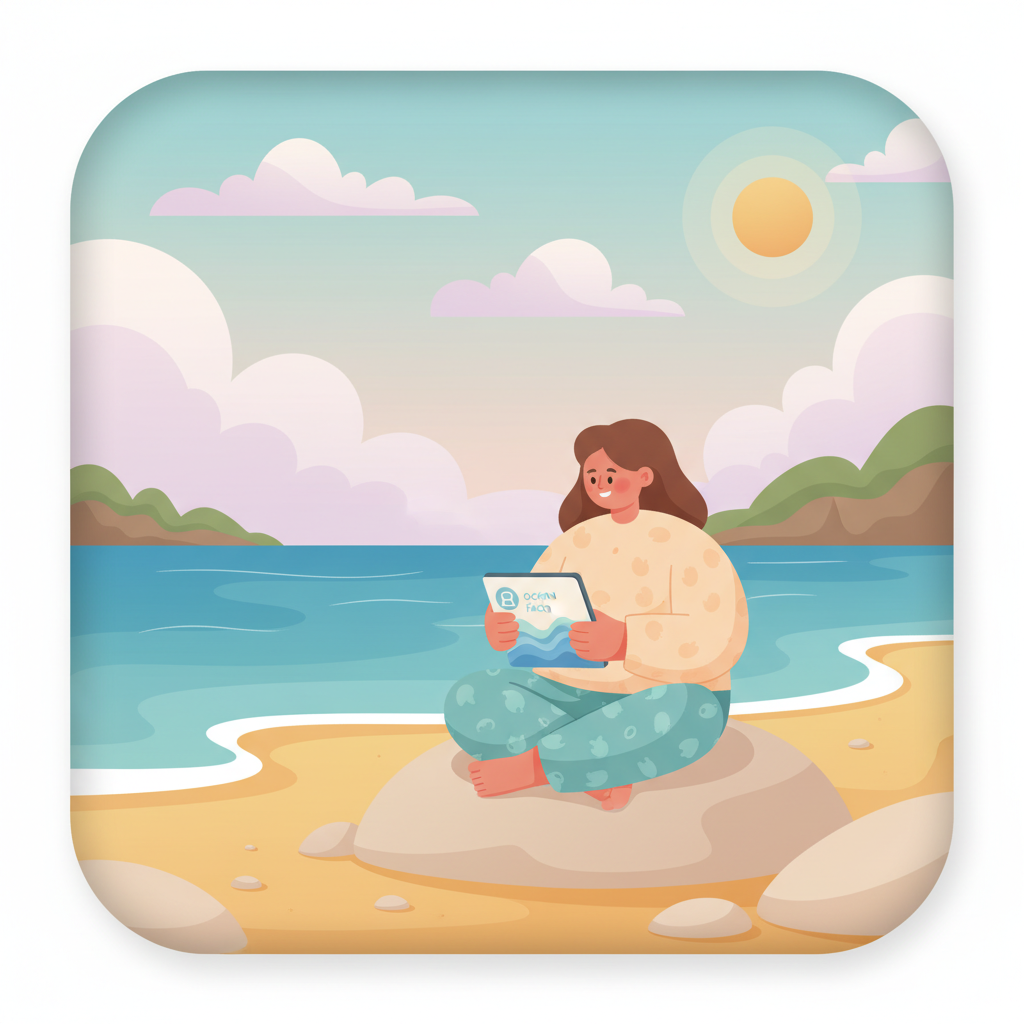Have you ever found yourself mesmerized by the vastness of the ocean and wished you knew more about its mysteries? As an ocean lover, understanding ocean facts can deepen your appreciation and strengthen your connection to this incredible part of our planet.
Building simple daily habits is one of the most effective ways to steadily and enjoyably learn ocean facts without feeling overwhelmed. By incorporating manageable learning moments into your daily routine, you can uncover fascinating details about ocean life, ecosystems, and their vital role in Earth’s health.
In this article, you will discover three easy daily habits designed to help you learn ocean facts over time—making ocean knowledge an inspiring and natural part of your everyday life.
Your 3 Simple Daily Habits To Learn Ocean Facts
Habit 1 — Ocean Fact of the Day
Why: Committing to learn at least one new ocean fact daily trains your brain and feeds your curiosity continuously, helping you steadily build ocean knowledge.
How: Subscribe to an ocean-themed newsletter, use a dedicated app, or set a daily reminder to read or listen to one ocean fact each day. Jot it down in a notebook or a notes app for review.
Cue: Link this habit to your morning coffee or breakfast routine to create a consistent daily trigger.
Habit 2 — Connect with Ocean Media
Why: Engaging with videos, podcasts, and articles makes learning ocean facts enjoyable and reveals complex topics in accessible ways.
How: Dedicate 10-15 minutes daily to watch a short ocean documentary clip, listen to a marine science podcast, or read a blog post about ocean conservation or marine species.
Cue: Link this habit to your commute, lunch break, or unwinding time in the evening.
Habit 3 — Explore the Ocean Around You
Why: Seeing ocean life firsthand or visiting coastal centers enriches your understanding by connecting facts to real experiences.
How: If possible, take short trips to the beach or local aquariums, participate in a beach cleanup, or even explore tide pools. If you cannot visit the ocean often, use virtual tours or marine webcams.
Cue: Plan weekly outings or daily virtual sessions as part of your weekend or free time schedule.
Week 1 Schedule
| Day | Ocean Fact of the Day | Connect with Ocean Media | Explore the Ocean Around You |
|---|---|---|---|
| Monday | Read a fact about ocean oxygen production | Watch a short video on plankton | Visit a tide pool or watch a virtual tour |
| Tuesday | Learn about coral reefs | Listen to a podcast on marine conservation | Take a walk along the shoreline if possible |
| Wednesday | Discover ocean currents impact on weather | Read an article on ocean climate regulation | Explore aquarium exhibits or virtual cameras |
| Thursday | Find out about sustainable seafood choices | Watch a documentary snippet on ocean food webs | Join a beach cleanup or volunteer virtually |
| Friday | Understand ocean carbon storage (blue carbon) | Listen to marine species discovery stories | Spend time by the water reflecting or sketching |
| Saturday | Learn about ocean animals’ adaptations | Watch a nature photography slideshow | Take a boat trip or visit a marine education center |
| Sunday | Study threats to ocean health and solutions | Read blogs on ocean activism and citizen science | Plan next week’s ocean-focused activities |
Troubleshooting
Barrier: Feeling overwhelmed by too much information.
Fix: Focus on one ocean fact a day rather than trying to learn everything at once. Use brief, easy resources tailored to beginners to keep motivation high.
Barrier: Difficulty staying consistent with daily learning.
Fix: Attach your learning habit to an existing daily routine (like morning coffee). Use reminders and track progress visually to build momentum learning ocean facts.
Barrier: Limited access to ocean resources or experiences.
Fix: Use free online virtual tours, podcasts, and videos about the ocean. Engage with local aquarium programs or online ocean communities to stay connected.
FAQs
Q: How long should I spend daily to learn ocean facts effectively?
A: Spending just 10-15 minutes a day with focused information is enough to effectively learn ocean facts without feeling like a burden.
Q: Can I learn ocean facts if I live far from the ocean?
A: Absolutely! Many online resources, virtual tours, and local aquariums provide great content that can help you learn from anywhere.
Q: How do I keep myself motivated to maintain these habits?
A: Tracking your progress, joining ocean lover communities, and setting small goals for learning ocean facts makes the process rewarding and sustainable.
Tracking & Motivation Tips
To keep motivated while you learn ocean facts, consider using a habit tracker app where you check off daily learning activities. Celebrate small milestones like a week of consistent learning. Sharing interesting facts you discover with friends or on social media can also boost motivation and create conversation. Remember, learning in small daily doses builds strong knowledge over time while keeping it fun and connected to your passion for the ocean.
Key Takeaways for Learning Ocean Facts
Learning ocean facts daily is attainable through small, deliberate habits like discovering an ocean fact each day, engaging with ocean media, and exploring the ocean environment whenever you can. These habits are manageable and fit easily into your day, helping you develop a deep, lasting connection with the ocean. By overcoming common barriers with simple fixes and tracking your progress, you’ll grow your ocean knowledge steadily and enjoyably.




